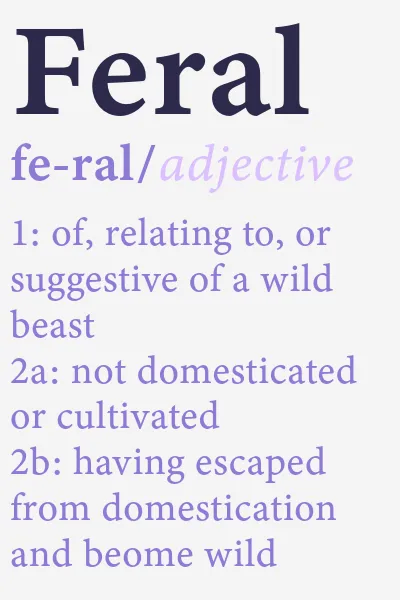Finding Happiness in Feral Living
Hello and welcome my fellow feral humans, those who value their freedom more than anything! I'm sharing my experiences to encourage your wild inclinations and to normalize veering from the path well traveled.
If you haven't taken the leap out of domestication yet, I encourage you to do so. Embrace the YOLO and find your peace. Life must be lived on your own terms in order to find satisfaction.
There's nothing quite as satisfying as going to bed each night knowing the day went the way you wanted it to go and that you did not let anything get in your way.

About Me
Feral lifestyle enthusiast, lifelong hardworker, family oriented, lover of travel.
Finding Happiness in Feral Living
Hello and welcome my fellow feral humans, those who value their freedom more than anything!

Ageism in Employment and Hiring
Ageism
The Real Reason Behind It and What You Can Do About It

We all have an invisible hourglass hanging over our heads; some have more sand, others have less. Regardless of how much time we have, time is a weird thing. Our appearance changes, our perspectives evolve, we have achievements and disappointments, but all the while we remain the same person at our core.
That is why it feels so odd when we are treated differently due to our aged appearance. We know we're still the same person on the inside, but our outward projected image influences others to treat us differently.
When it comes to employment, ageism can have devastating consequences on professional goals. Statistically, it is much harder for people over the age of 40 to continue career growth or find a new job. This seems to make no sense when taking a superficial glance at what employers are looking for. One look at a job site and you will see demands for 5-10 years of experience, even for entry level positions. Wouldn't employers want to have a larger pool of experienced candidates?
Actually, no. I'm going to veer slightly off topic for just a moment, but stick with me.
As a woman, I've been told all my life that one day, somewhere between the age of 35 - 40 years old, I will become invisible. In my youth, I feared the curse of invisibility. I was so afraid of getting older that I even stopped celebrating birthdays for a while.
What I didn't know then, was that you become invisible to the people you wanted to stay away from in the first place. The creepy types, who seek out the young, to prey upon their naiveté. The young are victimized because they don't yet know their worth, they allow others to mistreat them, and they simply don't have the experience or courage to say no.

That is the same reason why bad employers avoid mature candidates. When an employer has a preference for timid or validation seeking employees, they will view a mature candidate's experience as a red flag. It sends a message that this person has been around long enough to know when they are being taken advantage of and they probably have heathy boundaries with work. They will be less willing to sacrifice their precious time for breadcrumbs or for empty promises of career advancement, because they've already been tricked before.
This is actually a positive thing. When you hit 40, you want the right job, not just any job. Instead of feeling defeated in your hunt for the next opportunity, think of your age as a screening tool that reduces your chances of ending up with a bad employer.
The best thing to do is to spend the first 20 years of your career planning on exiting the world of employment by 40. Think about it, after 35, do you really need someone to pat you on the head and tell you you're doing a good job? Would a promotion at work, complete with the barely noticeable raise, really satisfy you?
Open a business to see how meaningless titles really are and experience your income no longer being controlled by someone else's budget. There is no need to pick one or the other; you can experience self-employment while employed, in order to reduce risk.
The ultimate promotion is 100% in your control an you can give it to yourself at any time.


